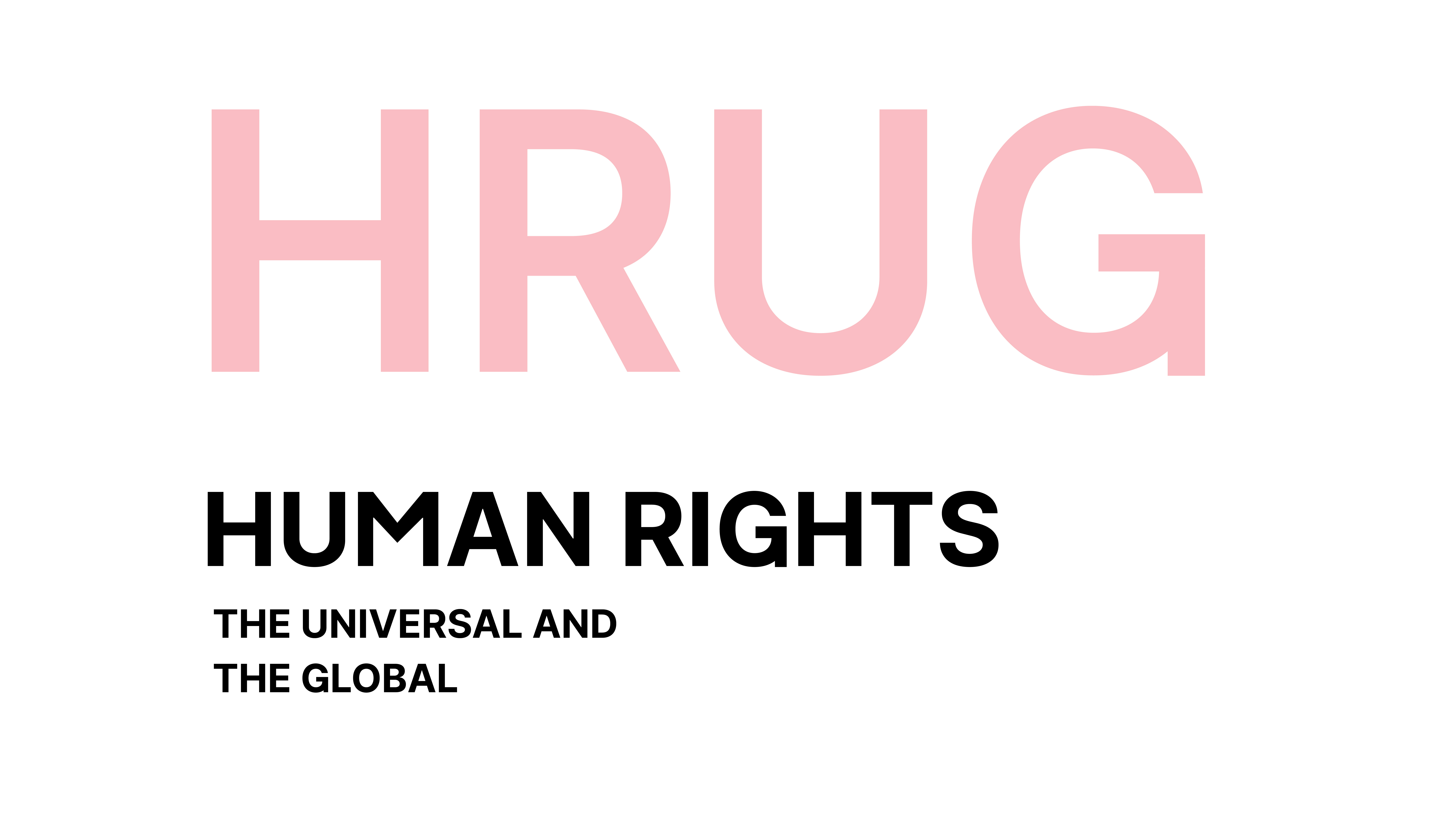AI: A Road to Inequality or Opportunity? – Video Link
On January 18, 2024, the HRUG regular seminar on “AI: A Road to Inequality or Opportunity” is successfully held. The seminar is reported by Krish Chetty (a research assistant of the Human Science Research Council, South Africa). Prof. Peter Herrmann and Associate Prof. Li Juan (both are researchers of CSU Human Rights Center), Prof. António Duarte (professor of psychology at the University of Lisbon, Portugal), Prof. Mehmet Okyayu (a professor of political science at Middle East Technical University, Turkey), Joe Finnerty (a social policy analyst, School of Applied Social Studies, University College Cork, Republic of Ireland) and Zeynep Deniz Şen (a doctoral student of Middle East Technical University, Turkey) participate in the discussion. This seminar mainly revolves around the social impacts brought about by the development and use of AI.
The reporter Krish Chetty points out that the development of AI will have an impact on traditional company structures. And many department positions that can be operated by AI agents may no longer require traditional labor, which will affect the company’s department settings and personnel configuration. Small businesses can leverage AI to enhance their competitiveness, such as developing AI teams to undertake legal, marketing, product management and operational functions, enabling them to compete with large enterprises.
He mentions that the next AI revolution will come in 10 or 20 years when general AI will surpass human intelligence. Before that, we need to create a society with digital capabilities and equality, and learn how to use AI to eliminate inequality.
Subsequently, he lists successful application cases of AI in creating business models, improving judicial services, and enhancing education systems. He also expresses concerns about the replacement of workers, economic inequality, separation of labor and economic production, and redefinition of the economic and governance system. He suggests increasing universal basic income or providing universal basic services as potential solutions.
During the evaluation and discussion phase, Professor António Duarte raises the question: “To what extent should AI be applied in the field of education in order to help improve students’ writing abilities”. Krish Chetty states that this issue is currently in the early stage of exploration. Based on existing practices, one approach is to ask students to submit handwritten papers or write papers in class to ensure the authenticity of their writing and their ability to think independently. Another approach is to allow students to selectively absorb and utilize the general information feedback from ChatGPT to obtain information and cultivate critical thinking, or use personalized teaching tools such as Duolingo to develop and implement personal learning plans.
For the topic of “Thinking on the Integration of Artificial Intelligence Transformation into the Framework of Human Rights” opened by Professor Mehmet Okyayuz, Professor Peter Herrmann reflects on the complexity of human-computer interaction and the potential biases and limitations of AI systems. He believes that AI should be used by people, and that the interpretation in the field of human rights involves the conflict of different positions and the trade-off of different rights. The feedback results of ChatGPT can only be regarded as a reference, and it is ultimately up to people to complete the criticism and debate of positions and rights. Krish Chetty believes that we must understand what opportunities AI models can provide us, emphasizing the importance of continuously developing and optimizing AI models to benefit the majority and prevent AI from becoming a driver of inequality.
Bases on the practice of large companies terminating user data ownership and control by signing service agreement terms with users, Associate Professor Li Juan raises the question that if it will lead to the termination of data ownership and infringement of privacy rights. She also expresses concerns about the security, protection, and equality of open-source AI model development. Krish Chetty believes that the potential consequences of AI developing faster than regulatory measures and governance policy construction need further exploration.
At the end of the seminar, Professor Mehmet Okyayuz proposes the concept of neural rights and thinks that people should consider whether AI can enjoy certain rights as a subject of rights. Professor Joe Finnerty believes that the plural of AI is the plural of intelligence.
2024年1月18日,HRUG定期研讨会之“人工智能:加剧不平等还是带来机会?”主题会议顺利召开。本次研讨会由南非人类科学研究委员会研究助理Krish Chetty进行汇报,中南大学人权研究中心研究员Peter Herrmann教授、葡萄牙里斯本大学心理学António Duarte教授、土耳其中东科技大学政治学Mehmet Okyayuz教授、爱尔兰国立科克大学应用社会研究学院政策分析家Joe Finnerty、中南大学人权研究中心研究员黎娟副教授以及土耳其中东科技大学博士生Zeynep Deniz Şen参加讨论。本次讨论主要围绕人工智能的发展和使用所带来的社会影响展开。
汇报人Krish Chetty指出,人工智能的发展会对传统公司结构带来冲击,许多可以由人工智能代理运行的部门岗位可能不再需要传统劳动力,公司的部门设置和人员配置都会受到影响。小型企业可以利用人工智能提升企业竞争力,如开发人工智能团队承担公司法律、营销、产品管理和运营等职能,从而能与大企业相竞争。
他提到,下一场人工智能革命将于1到20年之间到来,届时通用人工智能将超越人类智能。在此之前,我们需要创建一个具有数字能力和平等的社会,并学会如何利用人工智能来消除不平等。
随后,他列举了人工智能在创新商业模式、完善司法服务和改善教育系统等方面的成功运用案例,同时也对劳动者被取代、经济不平等、劳动与经济生产分离以及经济和治理体系的重新定义表示担忧,并建议探索全民基本收入或提供全民基本服务作为潜在的解决方案。
在评议和讨论阶段,António Duarte教授提出问题:“人工智能在教育领域应当在何种程度上被如何适用,才能有助于提升学生的写作能力”。Krish Chetty表示,这一问题目前处于早期探索阶段,根据现有实践,一种方式是让学生提交手写论文,或者让学生在课堂上撰写论文,以保障写作真实性和学生独立思考的能力。另一种方式是可以让学生选择性吸收和利用ChatGPT反馈的通用信息以获取资讯、培养批判性思维,或使用Duolingo等个性化辅助教学工具制定和实施个人学习计划。
对于Mehmet Okyayuz教授开启的“人工智能变革纳入人权框架下的思考”这一话题,Peter Herrmann教授反思了人机交互的复杂性以及人工智能系统的潜在偏见和局限性,认为人工智能应当为人所用,在人权领域的解读涉及不同立场的冲突和不同权利的权衡,ChatGPT的反馈结果只能作为参考,最终还是由人来完成立场与权利的批判与辩论。Krish Chetty认为我们必须了解人工智能模型能够给我们提供怎样的机会,强调了不断开发和优化人工智能模型的重要性,以造福大多数人,防止人工智能成为不平等的推动者。
黎娟副教授就大公司通过与用户签订服务协议条款解除用户数据所有权和控制权的实践提出“是否会导致数据所有权终结并侵犯隐私权”的问题,并对开源人工智能模型开发的安全性、保障性和平等性表示担忧。Krish Chetty认为人工智能发展速度快于监管措施和治理政策建设可能带来的潜在后果需要人们进一步探索。
会议最后,Mehmet Okyayuz教授提出神经权利的概念,并认为人们应当考虑人工智能是否能够作为权利主体享有某些权利。Joe Finnerty教授认为人工智能的复数就是智能的复数。
